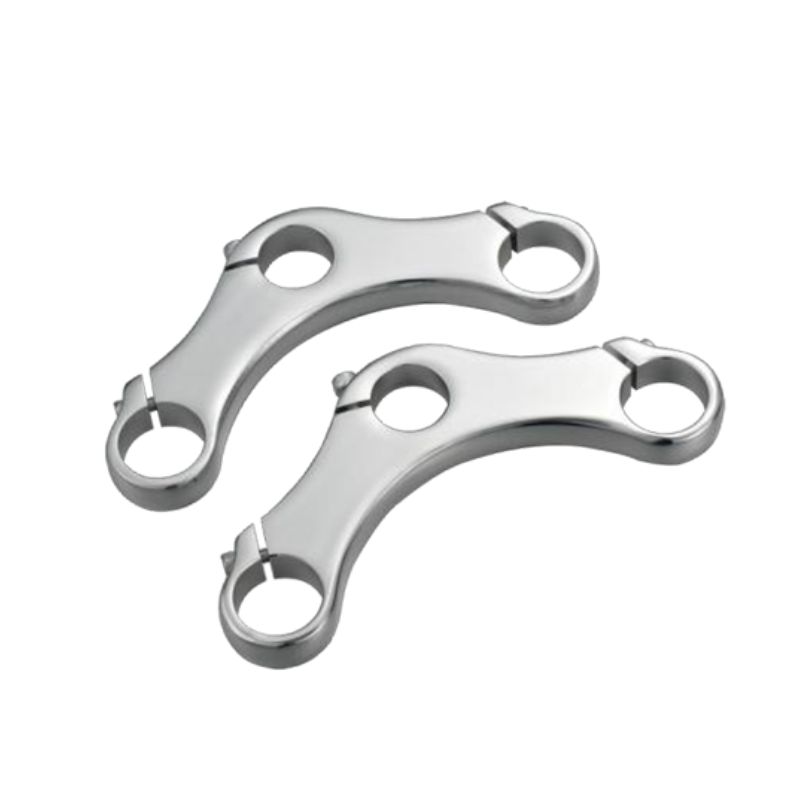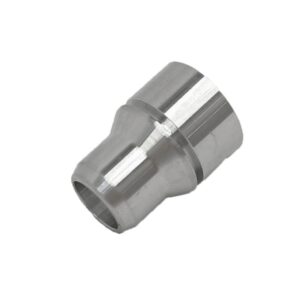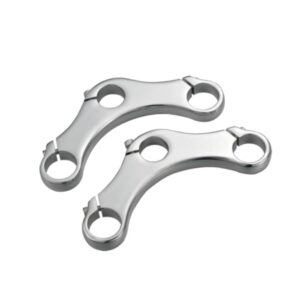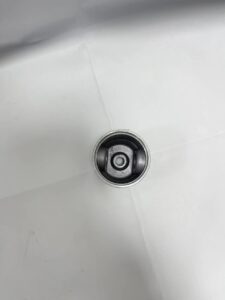In the modern construction industry, the demand for lightweight yet sturdy materials has never been higher. The evolution of architectural design and the increasing emphasis on sustainability have driven the need for innovative solutions. Aluminum forging stands out as a pivotal process in meeting these demands, offering a blend of strength, flexibility, and lightweight characteristics. This article explores the integral role of aluminum forging in producing lightweight structural components for buildings, with a focus on the contributions of MINGYU, a leading aluminum forge manufacturer.
Understanding Aluminum Forging
Aluminum forging is a manufacturing process that involves shaping aluminum alloys under high pressure to create high-strength components. Unlike casting, which involves pouring molten metal into a mold, forging compresses the material, enhancing its mechanical properties. This process results in components that are not only stronger but also more resistant to fatigue and impact.
The forging process can be categorized into several types, including open-die forging, closed-die forging, and ring rolling. Each method has its unique advantages and is selected based on the specific requirements of the component being produced. MINGYU specializes in closed-die forging, which is particularly suited for producing complex shapes with high precision and minimal material waste.
The Advantages of Aluminum in Construction
Aluminum is renowned for its lightweight properties, making it an ideal choice for construction applications where reducing the overall weight is crucial. This characteristic is particularly beneficial in high-rise buildings and structures where load-bearing considerations are paramount. Additionally, aluminum is highly resistant to corrosion, ensuring the longevity and durability of structural components.
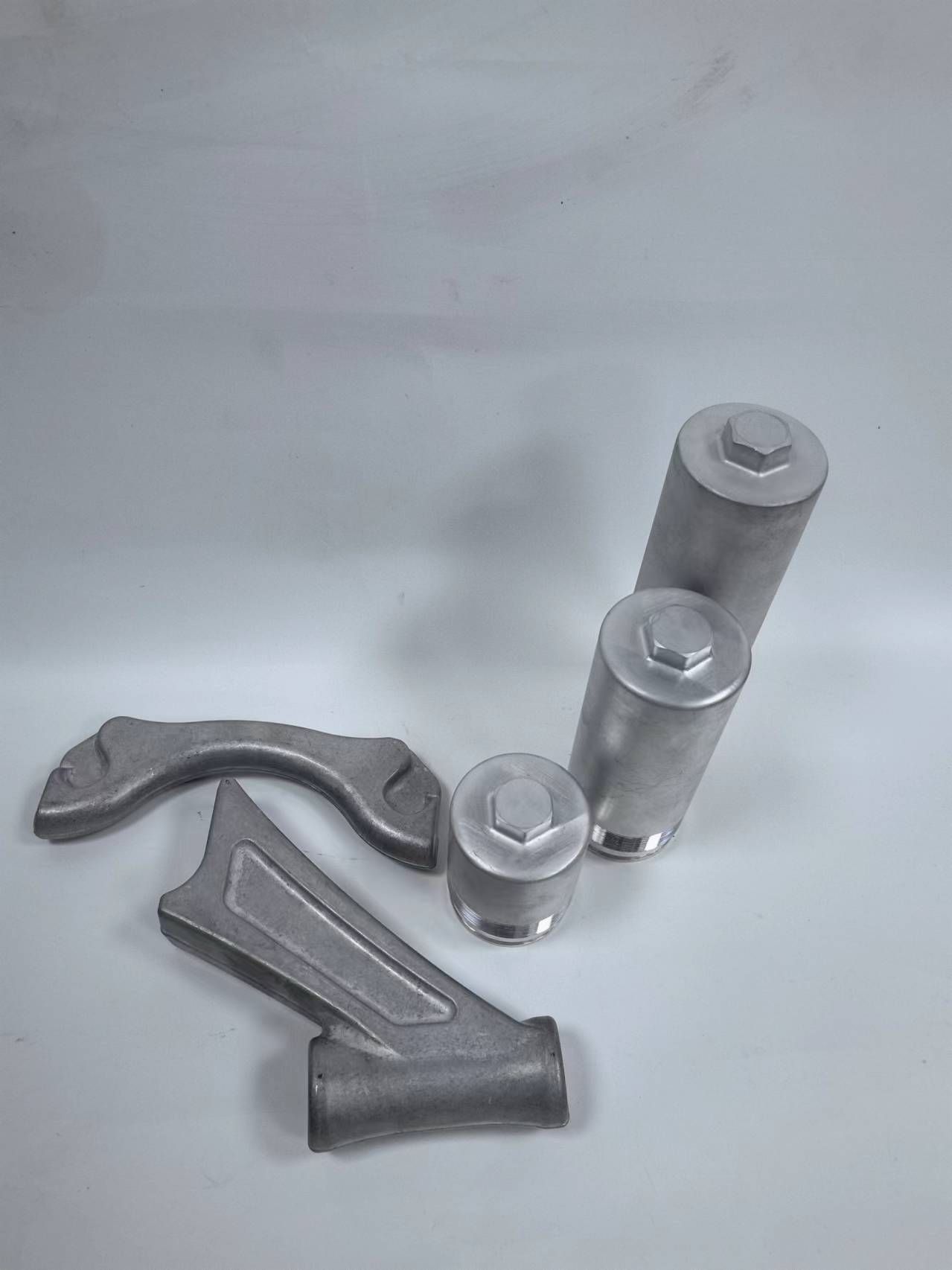
Another significant advantage of aluminum is its recyclability. In an era where sustainability is a key focus, the ability to recycle aluminum without losing its inherent properties makes it an environmentally friendly option. MINGYU is committed to sustainable manufacturing practices, ensuring that their aluminum forging processes align with the latest environmental standards.
The Role of MINGYU in Aluminum Forging
MINGYU has established itself as a leader in the aluminum forging industry, providing innovative solutions for the construction sector. Their state-of-the-art facilities are equipped with advanced forging presses and precision machining tools, enabling them to produce high-quality components that meet the stringent demands of modern architecture.
One of the key strengths of MINGYU is their ability to customize forging processes to suit specific project requirements. This flexibility allows architects and engineers to design structures that are not only aesthetically pleasing but also structurally sound. MINGYU’s expertise in material science and engineering ensures that each forged component meets the highest standards of performance and reliability.
Applications of Forged Aluminum Components in Buildings
Forged aluminum components are utilized in a wide range of building applications, from curtain wall systems to structural frameworks. The lightweight nature of aluminum makes it an ideal choice for curtain walls, which are non-load-bearing walls often used in modern architectural designs. These walls require materials that can support large glass panels while maintaining structural integrity.
In addition to curtain walls, forged aluminum components are used in roof structures, window frames, and support beams. The high strength-to-weight ratio of aluminum ensures that these components can withstand significant loads without adding unnecessary weight to the structure. This is particularly important in regions prone to seismic activity, where reducing the mass of a building can mitigate the effects of an earthquake.
Innovations in Aluminum Forging Technology
The field of aluminum forging is continually evolving, with new technologies and techniques emerging to enhance the efficiency and quality of the process. MINGYU is at the forefront of these innovations, investing in research and development to explore new alloys and forging methods. One such innovation is the use of computer-aided design and simulation tools, which allow for precise modeling of the forging process.
These tools enable engineers to optimize the design of forged components, reducing material waste and improving the overall quality of the final product. Additionally, advancements in heat treatment processes have further enhanced the mechanical properties of forged aluminum, making it even more suitable for demanding construction applications.
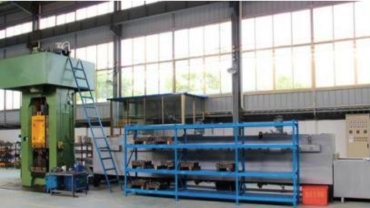
Challenges and Future Prospects
Despite the numerous advantages of aluminum forging, the industry faces several challenges. One of the primary challenges is the cost of raw materials, which can fluctuate based on market conditions. However, the recyclability of aluminum helps mitigate this issue, as recycled aluminum is often more cost-effective than virgin material.
Another challenge is the need for skilled labor to operate advanced forging equipment. MINGYU addresses this challenge by investing in workforce training and development, ensuring that their team is equipped with the necessary skills to operate cutting-edge machinery.
Looking to the future, the demand for lightweight and sustainable building materials is expected to grow. As urbanization continues and the construction industry seeks to reduce its carbon footprint, aluminum forging will play an increasingly important role in meeting these demands. MINGYU is well-positioned to lead the industry in this regard, with a commitment to innovation and sustainability.
Conclusion
Aluminum forging is a critical process in the production of lightweight structural components for buildings. With its numerous advantages, including high strength, corrosion resistance, and recyclability, aluminum is an ideal material for modern construction applications. MINGYU, as a leading aluminum forge manufacturer, is at the forefront of this industry, providing high-quality components that meet the demands of architects and engineers worldwide.
Through continuous innovation and a commitment to sustainability, MINGYU is poised to play a significant role in the future of construction. As the industry evolves, the importance of aluminum forging in creating lightweight, durable, and environmentally friendly structures will only continue to grow.

